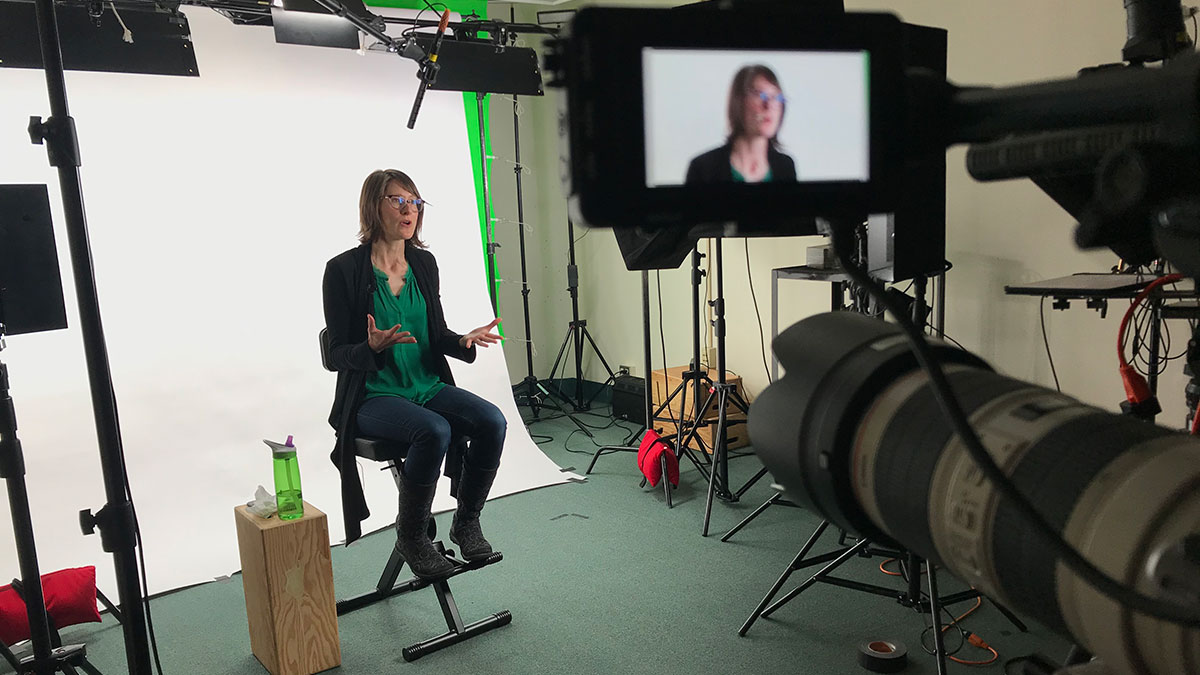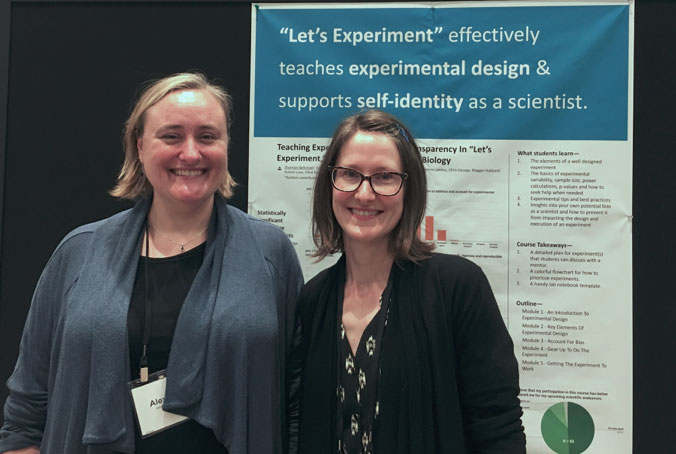For Shannon Behrman, our Director of iBiology, learning and talking about science has always been a passion. One of her first ventures into science communication was as a child, where she designed a treehouse rock museum for her backyard in a Texas suburb. The museum was a way to educate her neighbors about the natural history of the rocks she had collected over the years from the National Parks she had visited with her grandparents on long summer road trips. Scheduling delays and growth spurts meant that by the time her dad finished building the treehouse, she was too big to enjoy it, but her skills as a project manager have only blossomed from there.

After growing up in Texas, Shannon ventured west to UC Berkeley for college as an undergraduate, and has been in the Bay Area ever since. She earned her Ph.D. in cellular and molecular biology from the UCSF Tetrad graduate program. Shannon took some time in her stacked Zoom call schedule to talk about her career and the work she has done here at iBiology.
When did you start getting interested in science communication? After the rock museum, that is.
As a grad student, it started when I would have conversations with my parents and friends about my research. I just really enjoyed those conversations. I got a lot of value out of them, because it forced me to think about the assumptions I was making on what they knew and the language I used to describe certain concepts or ideas. I would think about how to explain my project in a way that was accessible to them and how I could lure them in and get them excited enough to ask questions. And when they would get excited, it would rub off on me, and I would get this renewed sense of excitement about my project again.
But the defining moment for me was really when I volunteered with this non-profit called the Science and Health Education Partnership program. They’re affiliated with UCSF, and they organize and support collaborations between scientists and educators to deliver high quality science education for K-12 students. As part of that program, I worked with teachers to build curricula and hands-on lesson plans on all kinds of science topics, not just biology. Then, I would get to teach those lessons in the classrooms. I had a lot of fun and got a lot of value in doing that. I’ll never forget one lesson where I was teaching development in Ms. Debra Netkin’s first grade class by showing a video of a developing zebrafish embryo, and I got some incredibly smart questions from the students which indicated to me they were really interested and engaged, despite this being a very complicated topic for such a young audience. You could see the cogs turning in the students’ minds. These teaching experiences taught me how to communicate with different audiences, and I just found that so seductive. I was so into it. It got me up in the morning at a time when I was really struggling in graduate school.
After my Ph.D. I started looking around for opportunities, and there was a health communications internship through the National Cancer Institute. They paired me with the Office of Cancer Genomics, and I wrote newsletters, web content, and articles about the research they supported. I discovered that I loved that kind of writing. They ended up offering me a permanent position after my internship ended, and I was a part of that team for about three years.
You’ve worked on a lot of different projects in your time at iBiology. Which one sticks out to you as a particularly meaningful experience?
The most transformative project for me by far has been the iBiology Courses. These online courses support the skills development of scientists-in-training and focus on topics such as developing a research plan, designing experiments, and giving effective scientific talks. These courses are so multi-dimensional, and require a combination of curriculum development, video production, technical development, evaluation planning, and project management. I was apprehensive at the start of the project, because here we were taking on something very ambitious that we hadn’t done before. And to be perfectly frank, I did not feel like I was an expert in this subject matter, despite having been PhD trained. It also stretched my professional development in areas outside my comfort zone, but ultimately it really paid off. I learned so much about project management, educational design & evaluation, and many other skills, which prepared me for the transition into my current role as director.
In addition to learning new skills with this project, I also learned about the potential impact we could have on the community we serve. Through our evaluations, students made it clear that the courses were not just engaging, but also bringing a lot of value to their research careers and endeavors. The skills and best practices they learned were building their competence and identities as researchers, and this was very gratifying to me and the team who worked on the courses. In thinking about how lost I was as a graduate student, especially in the first couple of years, I’m helping young scientists avoid that unnecessary floundering and struggle, and that makes me feel good.

With that in mind, how do you think your training in science would have been different if you had access to the resources that you’re now a part of?
Oh, that is such a good question. It’s so hard to know. I mean, I cannot imagine a life where I’m not doing what I’m doing right now. I can say that if I had access to these courses early on in my graduate training, I would not have spent as much time in my PhD. I think they would have made me more efficient by giving me solid best practices upfront as well as strategies to engage with my advisor and the mentors in my lab more effectively. So, I think that would have made my research experience better. Would that have translated into staying in research? I don’t know. I’ve always been passionate about science, but I’ve also really enjoyed communicating and teaching science so much more than doing science. So it’s possible I could have ended up in a similar position just based on knowing my own interests and motivations.




Leave a Reply